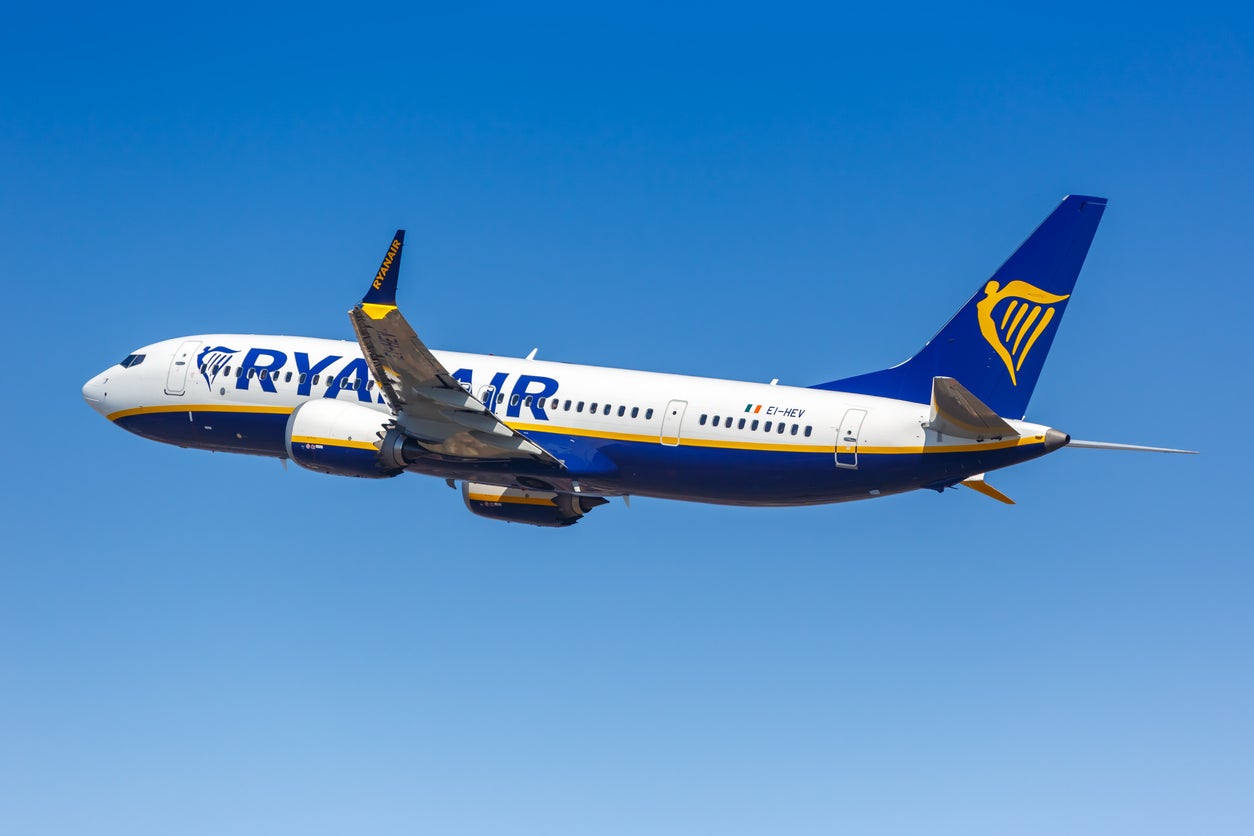Ryanair cuts losses by two-thirds – but still lost £10 per second for a year
‘Show up earlier and allow plenty of time to get through security, particularly at Manchester’ – Michael O'Leary’s advice to passengers this summer

Your support helps us to tell the story
From reproductive rights to climate change to Big Tech, The Independent is on the ground when the story is developing. Whether it's investigating the financials of Elon Musk's pro-Trump PAC or producing our latest documentary, 'The A Word', which shines a light on the American women fighting for reproductive rights, we know how important it is to parse out the facts from the messaging.
At such a critical moment in US history, we need reporters on the ground. Your donation allows us to keep sending journalists to speak to both sides of the story.
The Independent is trusted by Americans across the entire political spectrum. And unlike many other quality news outlets, we choose not to lock Americans out of our reporting and analysis with paywalls. We believe quality journalism should be available to everyone, paid for by those who can afford it.
Your support makes all the difference.Europe’s biggest budget airline has cut its full-year losses by almost two-thirds – but it still lost close to £10 per second.
Ryanair results for the financial year between April 2021 and March 2022 show a loss of €355m (£304m), compared to a loss of €1,015m (£868m) the year before.
The airline carried 97.1 million passengers, an average of 266,000 per day and more than three times as many as the previous year.
The “load factor” – the proportion of seats occupied – rose from 71 per cent to 82 per cent. The typical pre-pandemic load factor was 93 per cent.
Average fares during the year fell by 27 per cent to €27 (£23), which the airline says is “due to Covid, Omicron and Russia’s invasion of Ukraine”.
Ryanair had been planning a strong expansion in Ukraine this summer, before the attacks.
The chief executive, Michael O’Leary, told the BBC’s Today programme: “The invasion of Ukraine crashed travel plans for Easter.”
He said he expected fares to be “up by high single digit per cent” between July and September but could be lower during the coming winter, adding that capacity will be down 10-15 per cent.
The company is partly protected from high fuel prices. Ryanair says 80 per cent of its fuel needs are “well hedged at significant discount to spot prices” for remainder of the financial year – at a rate of under $70 per barrel, less than two-thirds of the current price.
Mr O’Leary said staffing, which has led to mass cancellations at British Airways and easyJet, was not a problem at Ryanair.
“We have a loyal and well-paid workforce in the UK and across Europe,” he said.
The Ryanair boss also had some advice for UK passengers about airport queues: “Show up earlier and allow plenty of time to get through security, particularly at Manchester.”
The airline received 61 Boeing 737 Max aircraft during the financial year, in a special configuration holding 197 passengers.
Join our commenting forum
Join thought-provoking conversations, follow other Independent readers and see their replies
0Comments